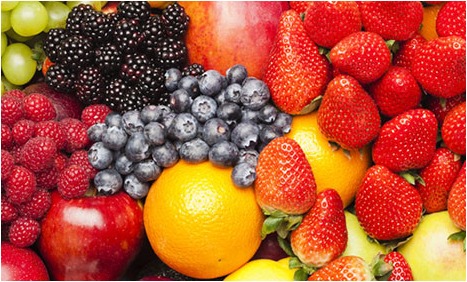
Negative Calorie Foods for Weight Loss: Exploring Their Effects and a List of Easily Available Options
Negative calorie foods have garnered attention as potential aids for weight loss. The idea behind these foods is that they contain fewer calories than the body expends in digesting them, leading to a net calorie deficit. Typically, negative calorie foods are rich in fiber and have high water content, and they are often plant-based.
Are there any side effects associated with negative calorie foods?
As of now, there is no concrete evidence suggesting that consuming negative calorie foods leads to adverse side effects. However, it is essential to exercise caution and avoid excessively restricting calorie intake without proper guidance, particularly if you’re not under the supervision of a registered dietitian. The amount of calories needed for weight loss is individualized and depends on various factors, including height, weight, BMI (Body Mass Index), BMR (Basal Metabolic Rate), and physical activity level.
Here is a list of easily available negative calorie foods that can complement your weight loss journey:
- Apples: Apples are a rich source of antioxidants, vitamin C, and dietary fibers. The high fiber content aids in weight loss and can contribute to improved cognitive performance. They provide approximately 52 kcal per 100g.
- Tomatoes: Known for their high water content, tomatoes are also rich in potassium and vitamin C. The antioxidant lycopene found in tomatoes is believed to offer protection against skin cancer. They contain around 19 kcal per 100g.
- Carrots: Carrots are not only beneficial for the eyes due to their vitamin A content but also help keep the stomach feeling full, reducing the temptation to snack excessively. They contain about 41 kcal per 100g.
- Broccoli: This vegetable is not only good for brain health but also possesses anti-inflammatory properties. It is frequently used in weight loss meals and provides approximately 34 kcal per 100g.
- Celery: A well-known negative calorie food, celery is low in calories, making it a great addition to your diet. It contains approximately 16 kcal per 100g.
- Cucumber: With its high water content, cucumber is an excellent hydrating option, particularly during hot summer months. It aids in soothing the stomach and provides essential minerals and vitamins. Cucumbers offer about 15 kcal per 100g.
- Lettuce: Often used in salads and burgers, lettuce is a low-calorie food packed with vitamins C, K, and A, as well as calcium. It supports heart and eye health and contains around 15 kcal per 100g.
- Watermelon: Perfect for summers, watermelon is rich in vitamins A, B6, and C, and helps with hydration and regulating blood pressure. It contains about 30 kcal per 100g.
- Berries: Various berries like blueberries, strawberries, and raspberries have a low glycemic index and are loaded with antioxidants, making them beneficial for overall health.
- Zucchini: Full of vital vitamins, minerals, and antioxidants, zucchini can help prevent oxidative stress and promote eye health.
Incorporating these negative calorie foods into a well-balanced diet, alongside regular physical activity, can be a smart approach to support your weight loss goals. However, remember that sustainable weight loss is a result of a holistic and personalized approach to nutrition and lifestyle. Always consult a healthcare professional or registered dietitian for personalized advice and guidance tailored to your specific needs.
